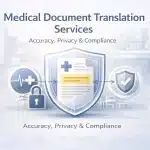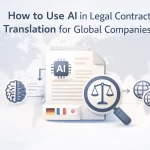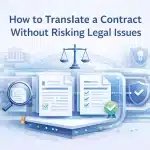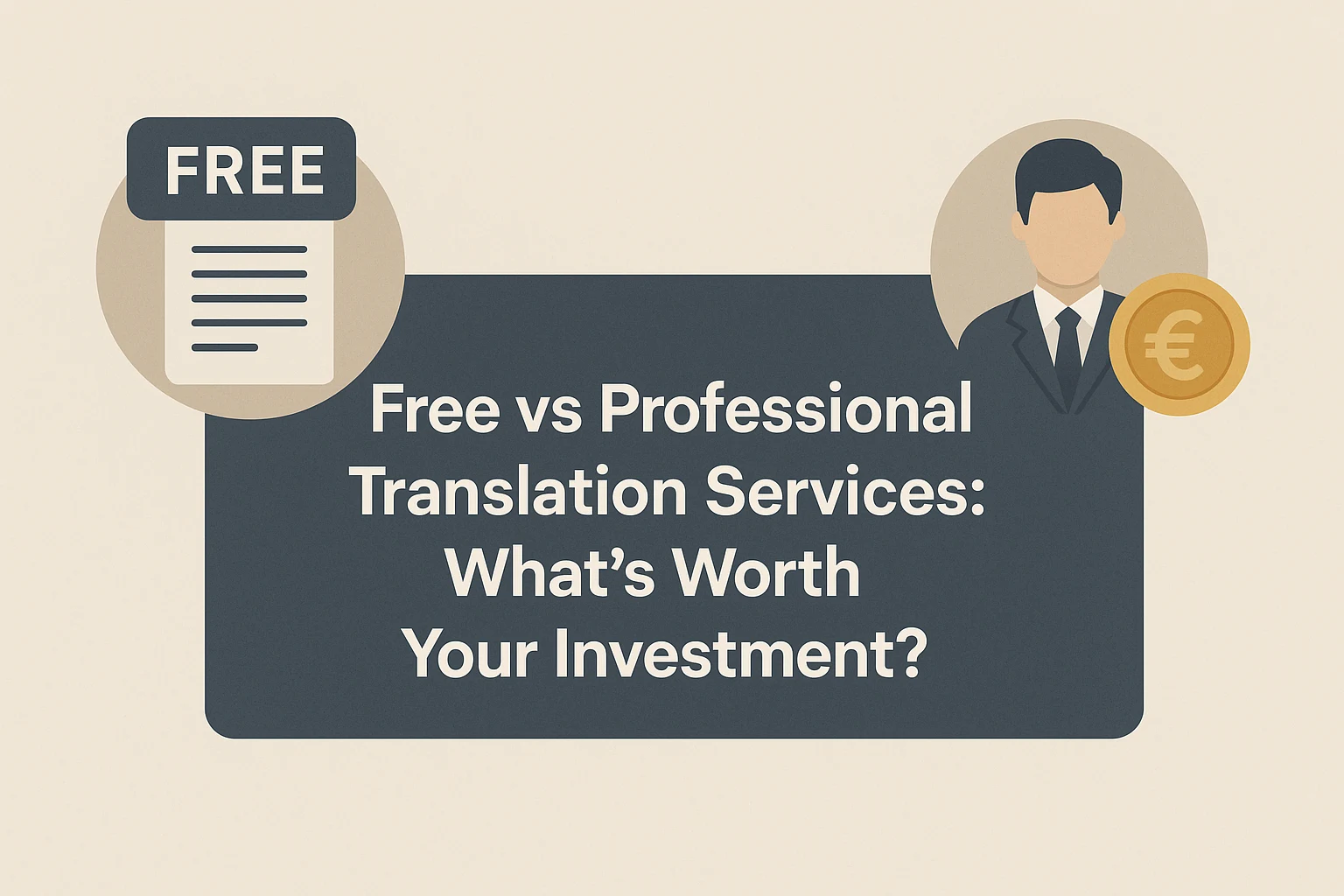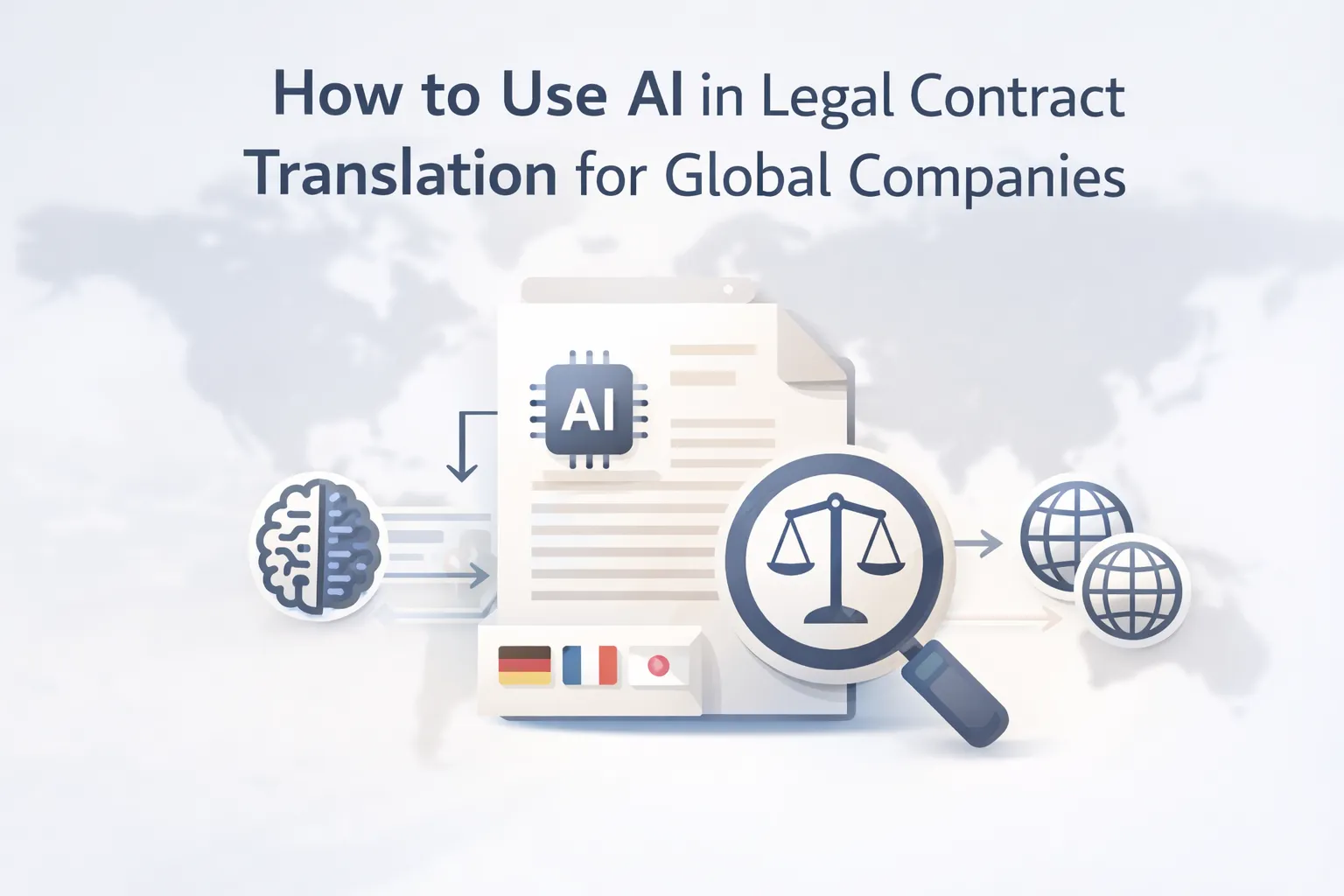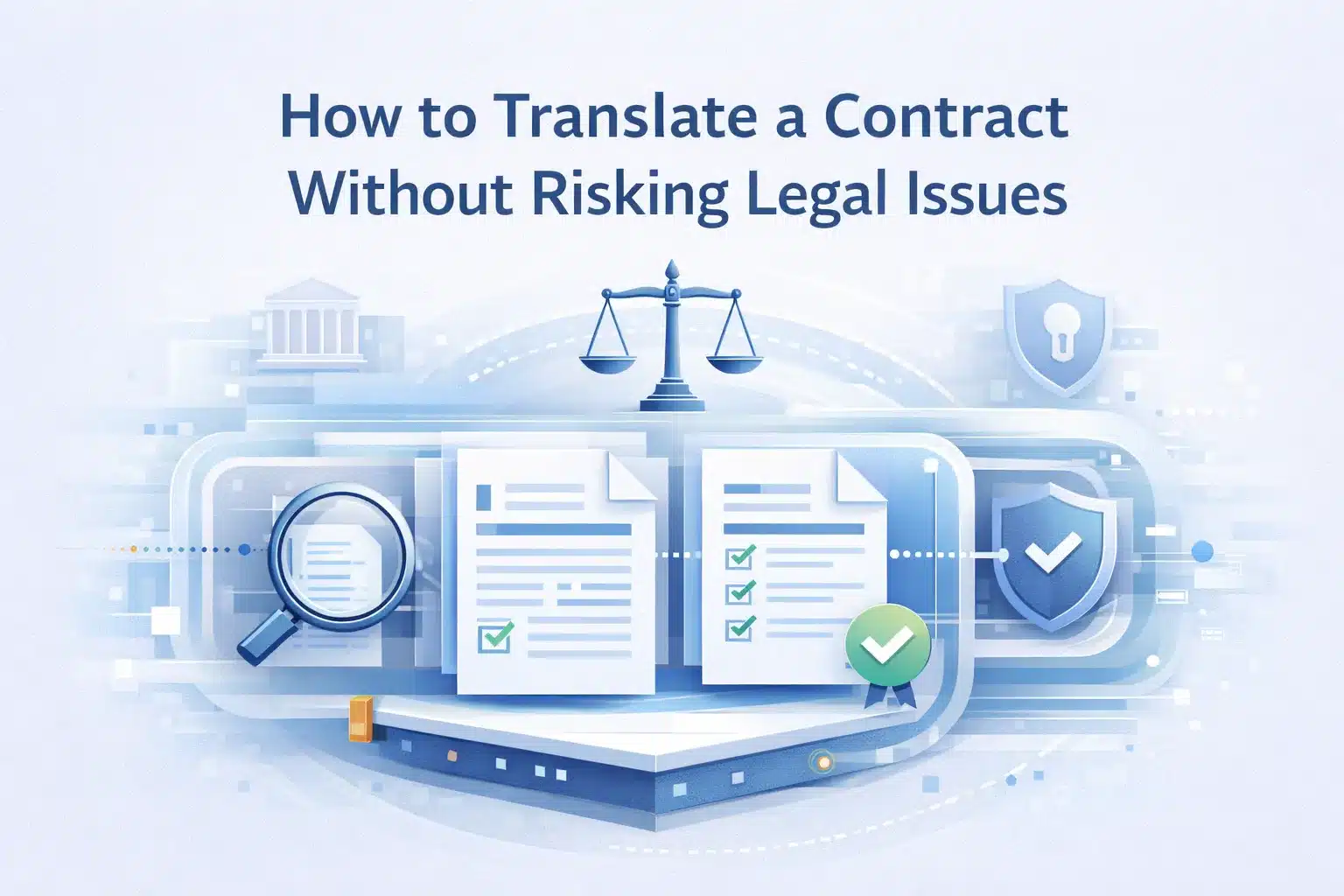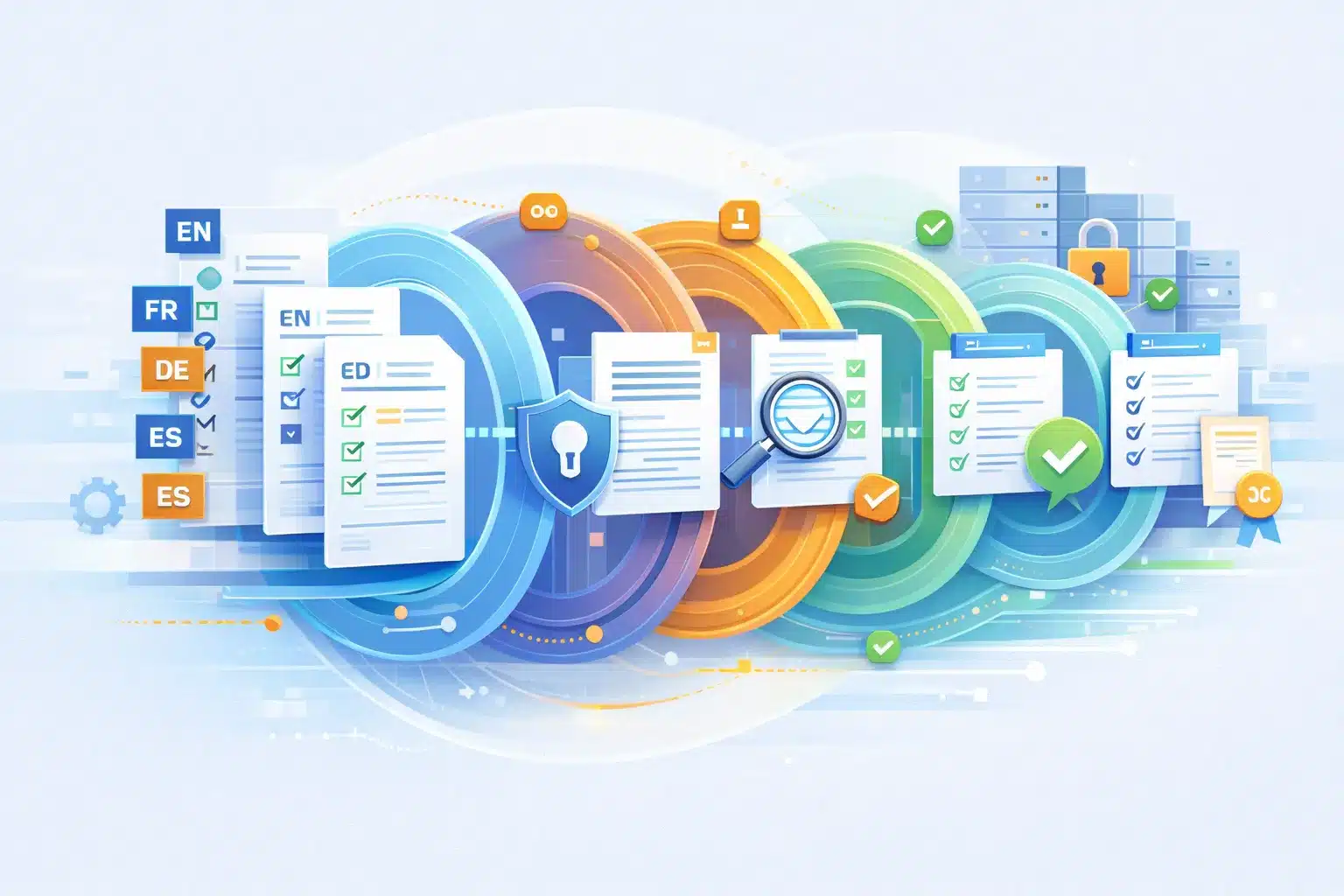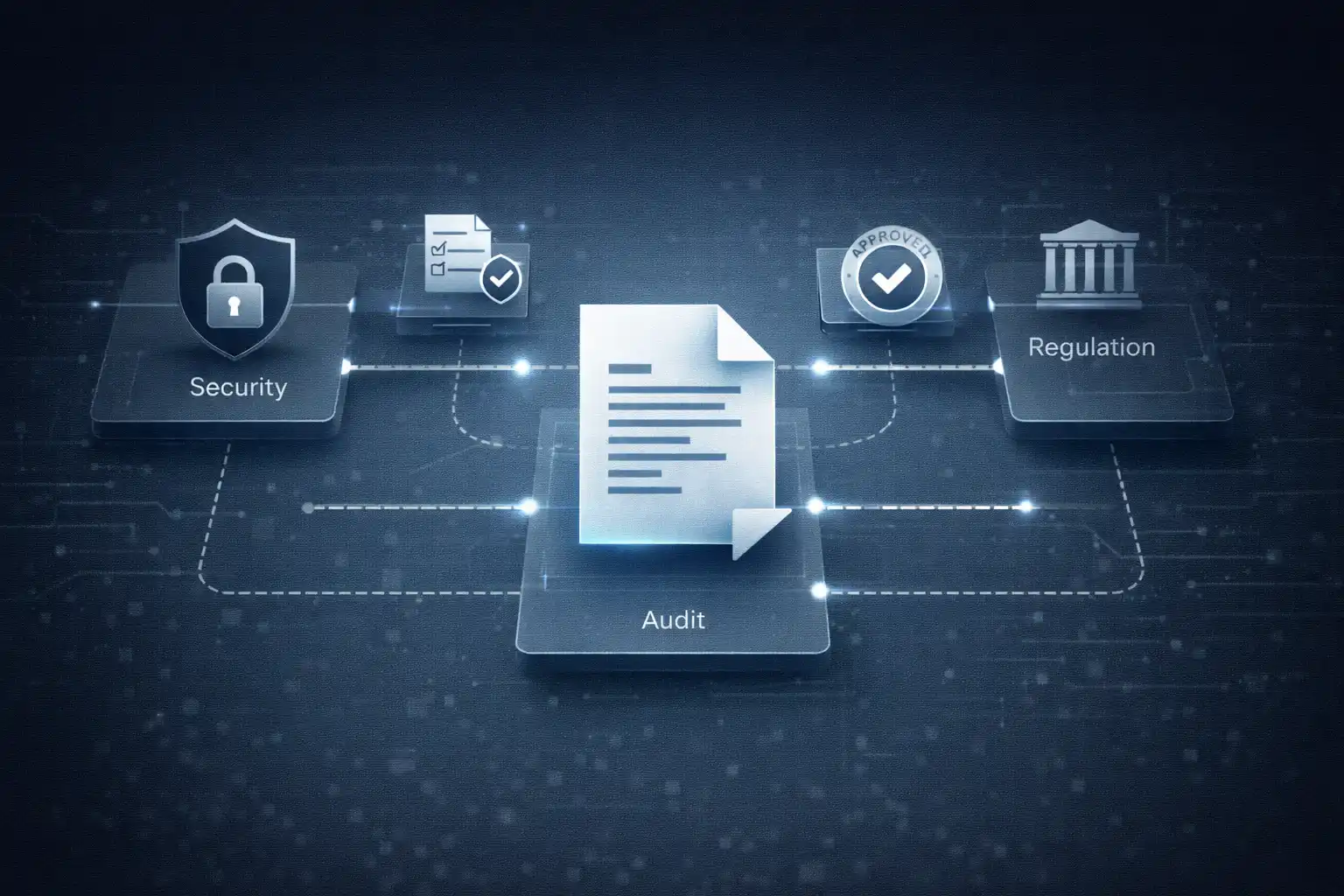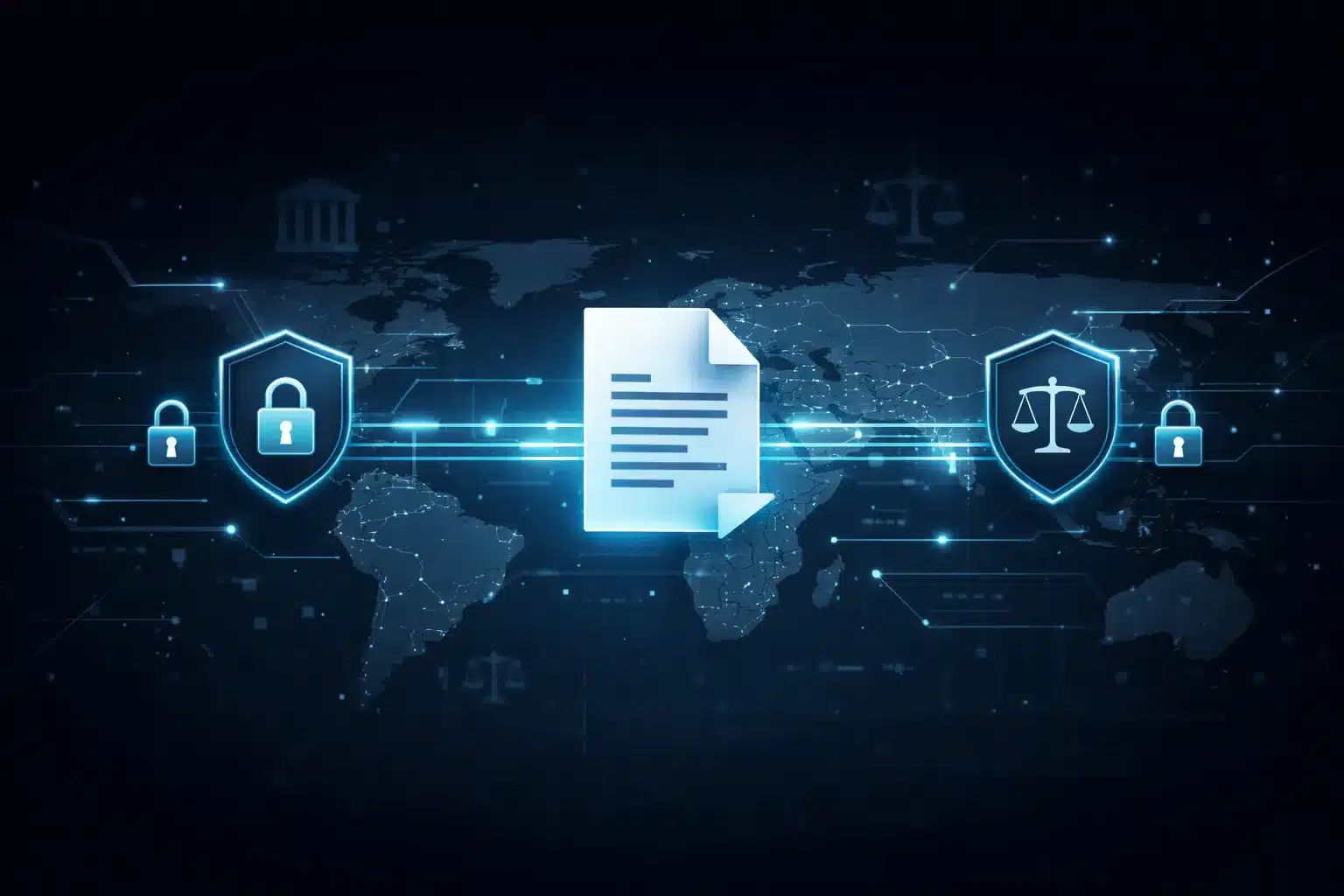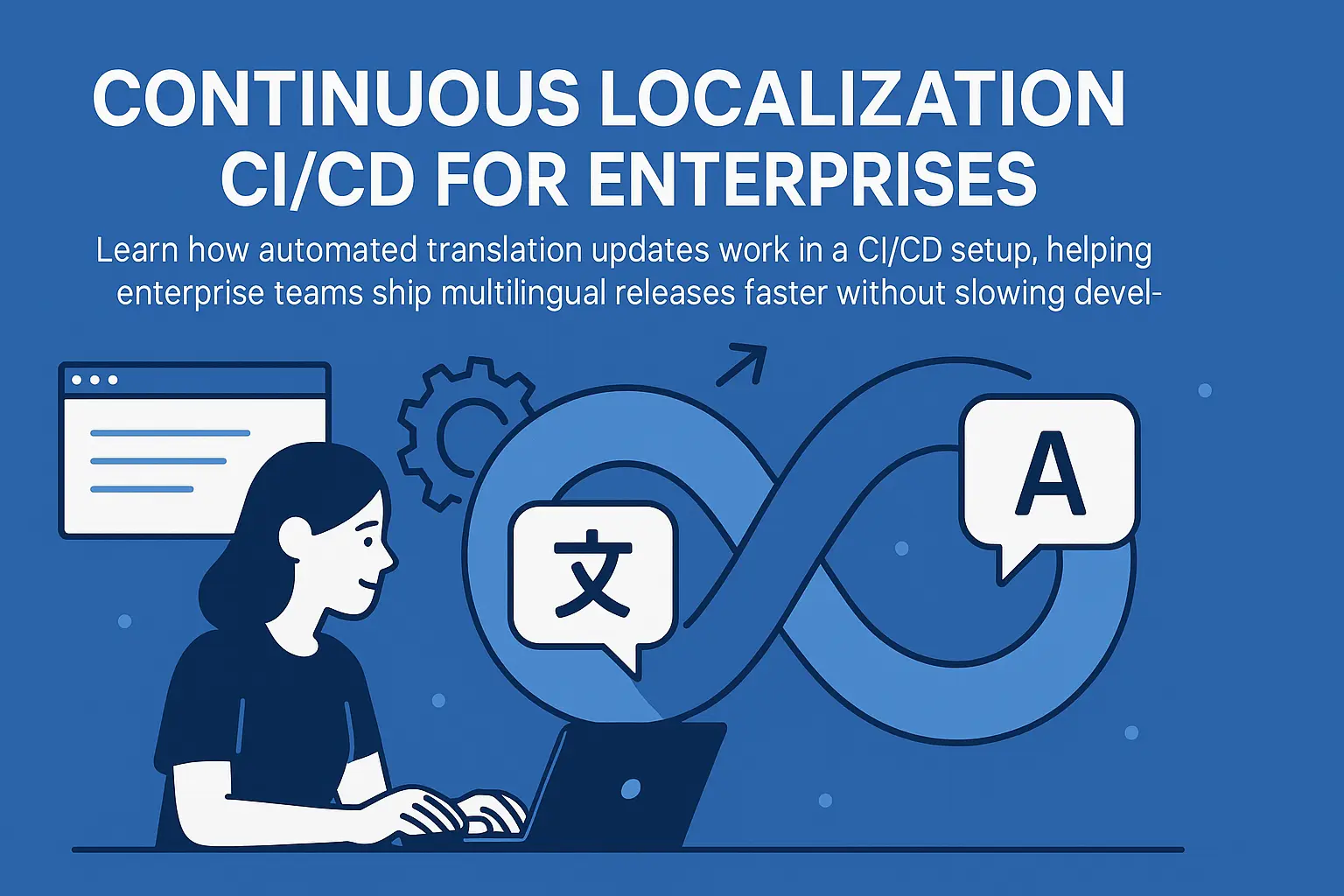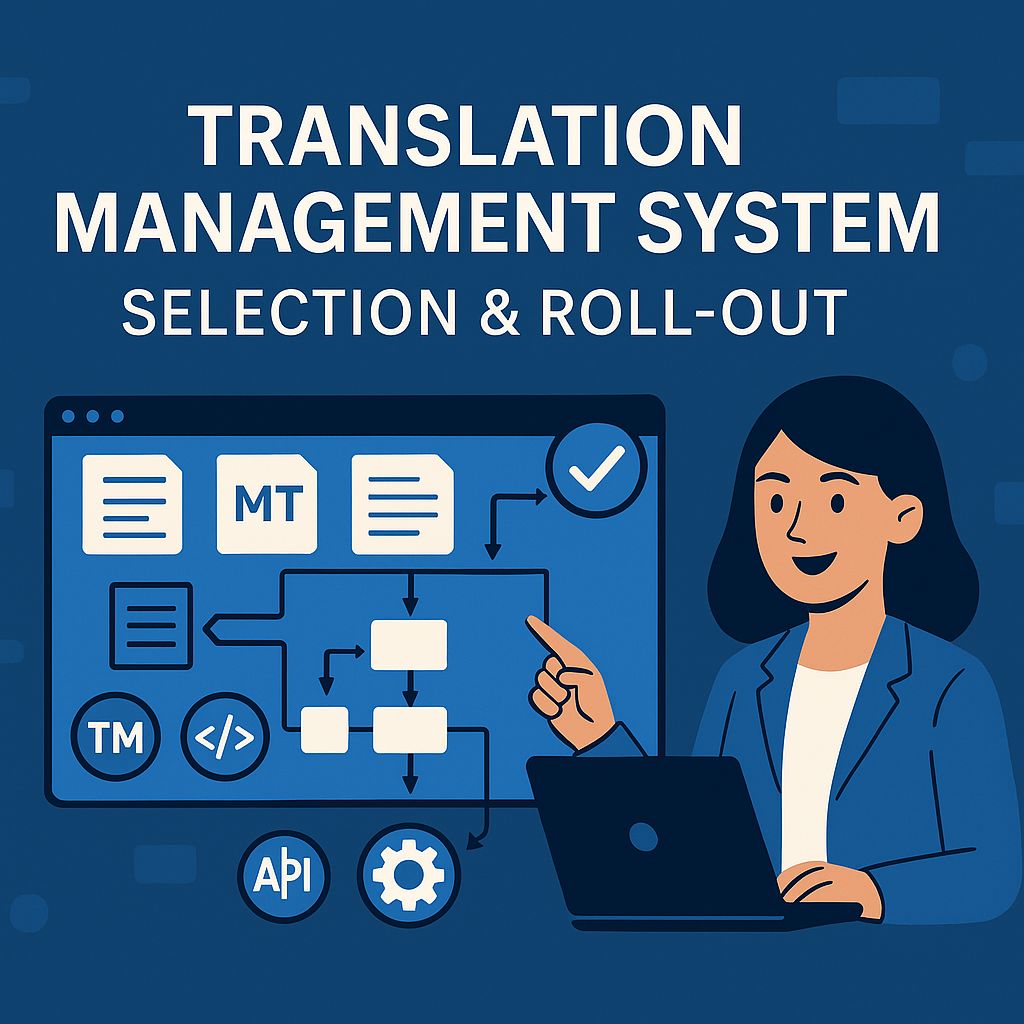When scaling internationally, a professional translation service is a must-have. Suffice to say, the question itself is irrelevant, and a better one is to ask how to approach it without compromising on quality or breaking the bank.
Tools like Google Translate, DeepL Free, or Microsoft Translator are great for personal use. However, B2B organizations often work with much more complex documentation, have sensitive documents that are simply unsafe for open source services.
To keep the quality, brand tone, and security in check, professional translation services are simply non-negotiable, as the free tools, more often than not, become a liability risk.
This article breaks down free vs professional translation services through a B2B cost-benefit and risk analysis, offering decision-makers a clear understanding of what getting professional services is worth the investment.
What Are Free Translation Tools and How Do They Work?
Free translation tools operate on NMT(Neural Machine Translation) technology. They are trained on public data available on the internet, and use statistical pattern recognition as their primary method for translation.
Free translation tools analyze texts at a token and sentence level, regardless of any cultural or business context. And it spits out translations based on the pretrained data. This way, you get literal translations, and the nuances required for enterprise-grade work get completely lost.
Here’s a list of some of the most popular free translation tools:
- Google Translate
- DeepL Free (not to be confused with DeepL Pro)
- Bing / Microsoft Translator
When Are Free Translation Tools Useful for Businesses?
It might look like free translation tools are totally unusable, but over the years, NMT technologies have come a long way and can be used for simple, short tasks. This, however, is only for informal personal tasks, rather than actual implementation into the workflow.
Here’s a snapshot of scenarios where using free translation tools can be used:
| Appropriate Use Cases | Inappropriate Use Cases |
| Internal, informal communication | Public-facing marketing content |
| Quick email summaries | Legal contracts or financial documents |
| Early drafts or brainstorming | Compliance documentation |
| Rough translation for personal use | Medical, technical, or regulated industry content |
| Non-public text with no branding or legal exposure | Any content containing customer data, personal information, or proprietary information |
Hidden Costs of “Free” Translation Tools
Free tools are free in the sense that they don’t cost anything to use. But they aren’t really free in the truest sense. All the data you plug into the “free” services will get stored on the servers for training and future use.
And that’s not all. Free translation services often make mistakes that, if go unchecked, could prove to be very expensive fixes.
Here are a few risks associated with free translation services listed below:
- Confidentiality leaks: text may be stored or reused by free MT engines.
- GDPR non-compliance: when uploading customer data or personal information.
- Legal risks: incorrect clauses in legal or compliance documents.
- Brand damage: tone inconsistency across websites, ads, and product pages.
- Accuracy drop: human translation accuracy vs. AI accuracy stat block
What Defines a Professional Translation Service?
Professional translation services provide human expertise and a structured workflow catered to your specific needs. Unlike free tools that rely on statistical reasoning for translation, linguists apply contextual understanding, industry-specific knowledge, and brand-sensitive interpretation to ensure accuracy and relevance across all content types.
Professional translation agencies such as Circle Translations employ native linguists with subject-matter expertise, capable of working with centralized glossaries of industry-specific terms. This way, your brand voice is consistent across all of the multilingual content pipeline.
Professional translation also provides the compliance and security safeguards businesses need. Providers follow GDPR and ISO 17100 standards, use secure file handling systems, enforce NDAs, and control access to sensitive content. This makes professional translation essential for companies that handle regulated, confidential, or high-impact information.
How Professional Translation Services Ensure Quality & Accuracy
Quality is reinforced through multi-step QA workflows. This process eliminates the errors, tone issues, and inconsistencies typical of machine-only translation.
Here’s a snippet of that:
- Multi-layer review of terminology, formatting, and accuracy scoring
Translators and reviewers check for correct industry terminology, style consistency, formatting integrity, and linguistic accuracy. Scores are assigned using standardized evaluation models to ensure each segment meets quality thresholds.
- Final delivery with revisions included
After internal review and proofreading, the final file is delivered with all necessary revisions incorporated. This ensures the output is polished, publication-ready, and aligned with the client’s brand voice and industry requirements.
- Tools like MQM, DQF, termbases, and TMS QA ensure measurable quality
MQM and DQF frameworks provide structured error scoring, termbases maintain consistent vocabulary across projects, and TMS-integrated QA catches issues such as missing tags, punctuation errors, glossary violations, and inconsistencies before delivery.
Why Human Expertise Still Beats AI in Context & Culture
Human translation is necessary due to the fact that AI/free tools still lack the capacity to grasp context, culture, and nuance, critical factors in b2c communication. Mistakes like a marketing slogan becoming offensive, a legal clause shifting meaning, or a technical term breaking product documentation will have immeasurable consequences.
Here’s a table summarizing where human translation is still superior to AI/free tools:
| Capability | Human Translation | AI Translation |
| Idioms & cultural references | Recognizes and adapts meaning across cultures | Frequently literal, misinterprets idioms |
| Brand tone & voice | Maintains brand language and style | Often generic, inconsistent with brand personality |
| Regulatory/industry terms | Applies subject-matter expertise | Can misinterpret technical or compliance language |
| Context & emotional nuance | Understands audience intent and emotional cues | Lacks empathy and deeper cultural insight |
| Real-world risk scenarios | Corrects ambiguous clauses proactively | May mistranslate critical text with risk impact |
Cost Comparison: Free vs Professional Translation
Cost is the primary reason why smaller brands consider the idea of using free translation tools. However, the real factor that often gets overlooked, is the value it adds. While free tools appear cheaper upfront, they lack the accuracy, confidentiality, revision workflows, and accountability required for business-critical content.
Here’s a table showing the gap between free tools and professional services:
| Category | Free Tools | Professional Services |
| Cost | €0 | €0.05–€0.16 per word |
| Accuracy | Inconsistent | High, controlled, reviewed |
| Context Handling | Poor | Expert-level |
| Confidentiality | Not guaranteed | NDA & GDPR-compliant |
| QA | None | Multi-layer QA |
| Brand Consistency | Poor | Excellent |
| Legal Safety | Not suitable | Industry-compliant |
What Factors Affect Translation Pricing?
Pricing depends on a few factors, such as scope, complexity, specialization, language pair, turnaround, etc. These factors directly influence the workflow, number of linguists working on it, and their designations.
There are, however, generic prices that most providers offer. Here‘s Circle Translations’ tiered pricing, for example:
| Tiers | Price per word |
| Basic | €0.05–€0.08 |
| Business | €0.09–€0.12 |
| Pro | €0.13–€0.16 |
Can Businesses Combine Free & Professional Translation (Hybrid Approach)?
Yes, this is a valid model of translation providers use, and it’s called MTPE(Machine translation Post Editing).
This is a bilayered hybrid model where AI systems are used for the bulk of the translating task, and then a few rounds of LQAs(Linguistic Quality Assurance) are done to complete it.
This model works so well because it allows for less manual intervention, resulting in smaller expenditure and a quicker turnaround rate for the same amount of work than a human-only workflow.
Business Risks of Relying Solely on Free Tools
Free machine translation tools introduce significant technical and operational risk when used for enterprise content. These systems lack controlled terminology, domain-trained linguists, and validated QA processes, leading to accuracy gaps across legal, medical, financial, and technical documentation
Free AI tools often lack the understanding of nuances, which can backfire in b2b communications. Literal translations often cause problems with industry-specific terminologies, clause interpretation, and instructions, which can very easily turn into a compliance issue.
In addition to accuracy issues, free tools undermine governance and content integrity. They offer no traceability, no revision history, no audit trail, and no accountability for the quality of their output. This creates inconsistent brand messaging and costly rework for teams managing regulated information.
How Data Privacy and Legal Compliance Are Compromised
Mistranslations can easily cause regulatory and compliance issues in foreign markets. Free translation tools often lack the domain knowledge and cultural context necessary to avoid errors, resulting in such issues.
Quality Impacts: Mistranslation and Brand Damage Examples
Marketing:
A mistranslated slogan or campaign message can trigger public backlash, dilute brand positioning, or cause cultural offense in a target market. This often results in lost trust, reduced engagement, and costly campaign corrections.
Legal:
A misinterpreted clause, no matter how subtle, can invalidate contractual intent, create ambiguity, or expose the organization to liability. These errors can escalate into disputes, compliance failures, or regulatory penalties.
Medical & Healthcare:
An incorrect dosage term or misrendered clinical instruction can endanger patient safety, breach medical regulations, or compromise product labeling integrity; consequences no healthcare organization can risk.
Manufacturing & Technical Fields:
A mistranslated assembly step, safety instruction, or equipment specification can lead to operational failures, accidents, or product recalls. Technical terminology requires precision that free MT engines cannot guarantee.
ROI and Long-Term Value of Professional Translation
Professional translation services are a long-term investment for multilingual operations. They offer values that cannot be quantified in instant profits or ROI numbers. High-quality multilingual content strengthens market trust, improves customer perception, and supports consistent global branding, essential for organizations scaling across multilingual markets.
Professional work also removes the need for costly reworks and damage control that is often the story with free translation tools. Companies that adopt professional translation typically benefit from faster market entry, fewer customer misunderstandings, and stronger compliance posture.
How Accurate Translations Drive B2B Growth
Accurate translation contributes directly to business growth by improving engagement, conversion rates, and customer retention across regions. Localized content performs significantly better than generic or machine-translated text, with industry benchmarks showing up to 2.5× higher engagement for localized assets.
Accurate localization is the biggest weapon when entering a new market, and global SaaS, fintech, healthtech, and manufacturing companies make the best use of this. Expert use of professional localization results in increased trust and a rise in onboarding.
How to Choose Between Free and Professional Translation for Your Use Case
There’s barely any use for free translation tools in a professional setting; however, small, informal tasks can still be assisted by them.
Here’s a checklist embedded into the following table that helps you decide which one is suitable for your organization:
| Choose Free Tools If… | Choose Professional Translation If… |
| Content is internal or informal | Content is public-facing |
| Risk is low | Brand tone and consistency matter |
| Accuracy is not mission-critical | Audience is B2B, technical, or regulated |
| No legal, financial, or compliance exposure | Confidentiality, GDPR, or IP protection is required |
| Not tied to branding or customer experience | Accuracy and compliance are business-critical |
Why Choose Circle Translations for Professional, Secure, and High-Accuracy Translation Services
Circle Translations delivers professional, compliance-ready translation solutions designed for businesses that can’t afford errors, confidentiality risks, or brand inconsistency. We bridge the gap between free machine tools and enterprise-grade linguistic quality by combining human expertise, secure workflows, and structured QA.
Here’s what sets us apart:
Native Linguists With Industry-Specific Expertise
We don’t assign generalists to specialist content. Our linguists have deep experience in:
- Legal
- Finance
- Healthcare
- Manufacturing
- Technology
- Marketing & Advertising
This ensures precise terminology, correct tone, and accurate interpretation of industry-specific concepts that free MT tools consistently misread.
Our linguists understand your industry, the context, the regulations, and the vocabulary, so your content is right the first time.
Multi-Layer Quality Assurance (QA) for Reliable Accuracy
Where free tools rely on prediction, we rely on rigorous human quality control. Every project includes:
- Human translation
- Human proofreading
- Optional LQA (MQM/DQF scoring)
- Terminology and glossary alignment
- PM review before delivery
This multi-step workflow eliminates the mistranslations, brand inconsistencies, and compliance risks that free tools create.
You receive accurate, publish-ready, liability-safe content every time.
GDPR-Compliant, Confidential, and Secure Workflows
Unlike free MT tools, Circle Translations never stores or reuses your content. Our workflows include:
- ISO 17100-aligned processes
- GDPR-compliant data handling
- NDA-vetted linguists and staff
- Encrypted file transfer
- Secure, access-controlled environments
This makes us a trusted partner for businesses handling sensitive contracts, financial statements, IP, customer data, or regulatory documentation.
Security is built into our process, not an afterthought.
Three Transparent Pricing Tiers to Fit Every Use Case
Free tools seem cheap until they cause expensive mistakes. Circle Translations offers predictable, transparent pricing designed for different content sensitivities:
| Service Tier | Price Range | What’s Included |
| Basic | €0.05–€0.08/word | MTPE (AI draft + human editing), light QA |
| Business | €0.09–€0.12/word | Human translation + proofreading |
| Pro | €0.13–€0.16/word | Translation + proofreading + LQA + PM oversight |
You choose the exact level of quality your project requires. No hidden fees, no unclear workflows, no quality shortcuts.
Hybrid MTPE Workflows for Speed + Accuracy + Cost Efficiency
When appropriate, we combine secure machine translation engines with expert MTPE (Machine Translation Post-Editing). This hybrid model provides:
- Faster turnaround times
- Lower total cost vs human-only translation
- Higher accuracy vs AI-only output
- Full confidentiality (unlike free MT tools)
- Consistent terminology and brand voice
You get the efficiency of AI with the reliability of professional linguists.
Dedicated Project Management and 24/7 Support
Free tools give you a translation; Circle translations gives you a team. Our PMs:
- Coordinate timelines
- Manage terminology and glossaries
- Ensure reviewer feedback is integrated
- Keep multi-language projects aligned
- Provide rapid support across time zones
Whether it’s a single contract or a 20-language product launch, you have a dedicated partner ensuring accuracy and consistency across all deliverables.
Trusted by Global B2B Clients Across Regulated Industries
Circle Translations supports companies in fintech, healthcare, SaaS, manufacturing, logistics, and legal services, industries where accuracy and compliance are non-negotiable.
Our commitment to security, accuracy, and reliability makes us a long-term partner, not a transactional vendor.
Sum Up
Although free translation platforms offer speed and accessibility, they can’t provide the consistency needed for a professional setting. The success of organizations scaling globally depends on the trust they can get and how quickly they can integrate. And professional translations are the best gateway for that.
Professional translation services offer consistent outputs, match your brand voice across all languages your operation expands to, and boost your visibility across all markets. Free tools are simply incapable of accomplishing such feats.
So, to answer the question, whether professional services are a worthy investment for your firm, yes, it is absolutely worth it.
Contact Circle Translations to get a quote, or visit our site to get more about the different services that suit your needs.
FAQs
Are free translation tools accurate enough for business use?
In short, no. For simple, low-risk internal text. But accuracy drops sharply with technical, legal, medical, or branded content. However, that is hardly the workload of a global organization. Free MT lacks context, tone control, and industry-specific vocabulary.
What is the difference between free and professional translation services?
Free tools rely entirely on automated machine translation with no human review, confidentiality, or quality control.
Whereas professional translation services, such as Circle translations, use native linguists, multi-step QA, secure workflows, and GDPR/ISO compliance.
Why pay for translation if free tools exist?
Professional translation ensures contextual accuracy, brand consistency, confidentiality, and compliance, critical for B2B organizations. Free tools offer no accountability and often lead to costly rework or legal exposure.
What are the risks of using free online translators?
sing free online translators can create problems for businesses, especially when dealing with B2B content. These tools often store or log text, which can expose sensitive information and lead to data-privacy or GDPR issues. They also produce errors in legal, technical, and financial materials, creating compliance risks. Tone and terminology may shift from one document to another, which affects brand consistency and professionalism.
Circle Translations avoids these problems by using NDA-bound linguists, encrypted workflows, and controlled environments that keep all corporate data private and consistent across projects.
Can I use AI translation with human editing to reduce costs?
Yes. AI draft + human post-editing (MTPE) is faster and more affordable than human-only translation while maintaining professional quality. Circle Translations offers secure MTPE workflows tailored for your enterprise needs.
How much do professional translation services cost?
The price depends on complexity, industry, and language pair, enterprises will offer you a custom quote. Any reputable translation service will offer transparent, predictable pricing across all tiers. Normally the pricing starts from $.O5 to $ .18 per word.
What industries benefit most from professional translation?
Almost every other industry that has a multilingual market, benefits from professional translation services. Specifically, Legal, Finance, Healthcare, Manufacturing, Technology, Marketing & Advertising, benefit the most.




